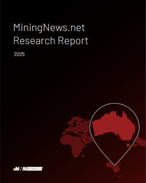This article is 12 years old. Images might not display.
Pike River went into receivership in early 2011 after an explosion at the mine in November 2010 resulted in the death of 29 men.
Its receivers PricewaterhouseCoopers have been responsible for overseeing efforts to reclaim the tunnel and attempting a re-entry.
In a statement released late yesterday, PwC confirmed that Solid Energy had completed due diligence and had signed a sale and purchase agreement for the mine.
Settlement is now expected to take place in July.
Under the terms of the purchase agreement, Solid Energy will pay Pike River Coal an initial $7.5 million.
Solid Energy will then pay a further $25 million by instalment, commencing when extraction over a consecutive 12-month period reaches 250,000 tonnes.
While the signing of a sale and purchase agreement for the mine marks a step toward Solid Energy being the official owner of the embattled Pike River mine, the news was overshadowed by the grim news that a recovery of the bodies may never take place.
Last night, Solid Energy, which was announced as the mines new owner in March, held a private meeting in Greymouth with the families of the men who died.
Solid Energy chief executive officer Don Elder, who spoke with the victims’ families, confirmed the recovery of the remains was only dependent on commercial mining at Pike taking place.
“After extensive work by our own technical team, including advice and review by international experts, Solid Energy has concluded that the only safe, feasible and credible option for recovering the men's bodies will be as part of a future commercial mining operation,” he said.
“This will take some years to develop and implement.
“We have reflected this in an agreement with the government, which shares this conclusion.”
Elder said the chances of re-opening Pike River for commercial production was a decision that would be subject to a vigorous assessment.
“As we stated to the Pike River royal commission, we have always believed that Pike River mine was developed with completely inadequate knowledge of geology, or mining conditions and requirements,” Elder said.
“We will have to do very substantial further work, including geological assessment, drilling, and mine feasibility assessment, before we can determine whether there is a viable commercial mining opportunity in the Pike River coalfield.
“This work may take a number of years and it has no certainty of a positive outcome.”
Elder said Solid Energy was committed to taking the necessary steps to bring the men home to their families but the company would “not risk further tragedy in doing so”
“We know this is not the news some of the family members were hoping for, but it is the right answer and the only realistic answer,” Elder said.
The announcement that the recovery of the bodies was essentially conditional on mining at Pike River was met with extreme disappointment from the families of the victims.
Spokesman for the families Bernie Monk told the New Zealand Heard that the reality check was hard to swallow.
“A lot of people were just heartbroken,” Monk reportedly said.
“The families were emotionally upset that there could be a chance that we will never, ever get the guys out.
“It just bought it home to the families the outlook that it could be six or seven years before they ever get down there past the rockfall [where the men are believed to have died] to do any mining.”
The announcement that the recovery of the men’s bodies could take years also prompted an angry response from the New Zealand Green Party, which accused the government of failing to honour its promise of recovering the bodies.
“John Key told the Pike River families the government would do all it could to recover the bodies,” Green Party West Coast based MP Kevin Hague said.
“That promise has not been honoured.
“If Solid Energy determines that Pike River can’t be mined then the bodies will not be recovered.”
The party urged the government to honour its commitment to recover the bodies regardless of cost.
“The government has seriously let down Pike River families and created the dangerous prospect that the bodies will never be recovered,” Hague said.
While work to seal and ventilate the mine has been continuing under PwC, these efforts by the receivers will now cease because the company is no longer in a position to progress these activities.
























